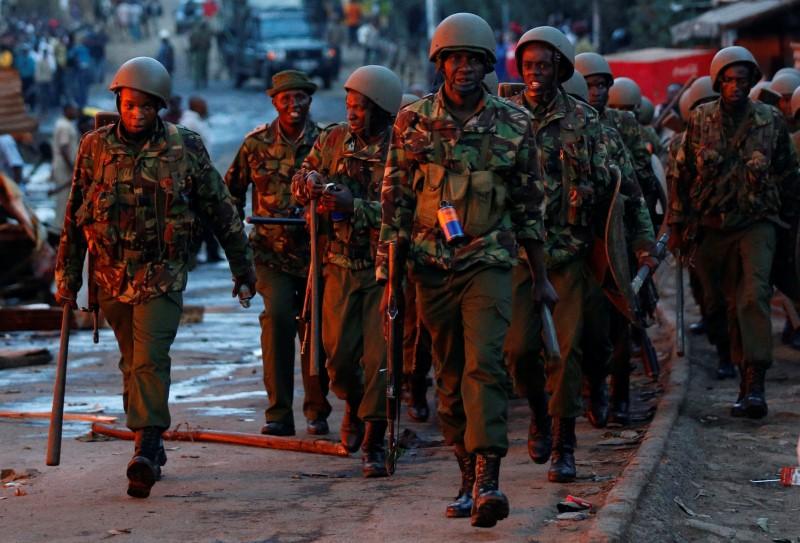Politics
Carter Center Calls for Dialogue and National Reconciliation to End Kenya’s Protracted Political Impasse

NAIROBI — In a statement about Kenya’s Oct. 26 election released today, The Carter Center urged Kenya’s political leaders to engage in constructive dialogue to bridge the gap between the opposition and ruling parties, and their respective supporters, following a tense electoral period.
Kenya’s fresh presidential election, scheduled following the Supreme Court’s annulment of the Aug. 8 race, unfolded in a context of heightened tensions stemming from the protracted electoral process, confrontational tactics and harsh verbal attacks by key political leaders, and outbursts of violence around election day. These problems severely undermined the ability of Kenya’s electoral and judicial institutions to implement the fresh presidential elections. Rather than consolidating support for a national political program, the election polarized the country and exposed the deep tribal and ethnic rifts that have longed characterized its politics.
Regrettably, the actions of Kenya’s political leaders served to weaken its democratic and independent institutions, constrain the ability of citizens to participate in the civic affairs of their country, and damage the nation’s democratic development. In the days ahead, it is incumbent on political leaders to put personal agendas aside and take steps to heal the country while maintaining the country’s constitutional order.
Today’s statement provides an initial summary analysis of political and electoral developments between the Aug. 8 elections and the fresh election held on Oct. 26, based on the reporting of the Center’s core team of experts and long-term observers who were on the ground for the Oct. 26 poll. We note that the electoral process is not yet complete, as electoral disputes are pending in the Supreme Court. The Carter Center will release a comprehensive statement on the overall election process after its completion. A detailed final report will be published in early 2018.
The Carter Center has had a core team of experts in Kenya since April, monitoring key parts of the electoral process, including voter registration, campaigning, electoral preparations, and the recent resolution of disputes in the courts. That team was joined by a large group of observers who helped monitor voting, counting, and tallying in the days surrounding the Aug. 8 election. Following the Sept. 1 decision by the Supreme Court to annul the August election, the Center was invited by the IEBC to extend its presence to observe the Oct. 26 fresh election. Long-term observers rejoined the core team on Oct. 4 and were deployed to various locations in the country to observe critical pre- and post-election processes.
Because of insecurity surrounding the polls, the uncertain political environment, and the lack of a fully competitive election, the Carter Center deployed a limited election observation mission to assess the Oct. 26 polls. The team was limited in size and geographic scope. Given these factors, the Center did not conduct a robust assessment of polling station level processes on election day.
Read the full statement below
kenya-prelim-nov2017Kenya Insights allows guest blogging, if you want to be published on Kenya’s most authoritative and accurate blog, have an expose, news TIPS, story angles, human interest stories, drop us an email on [email protected] or via Telegram
-

 Grapevine6 days ago
Grapevine6 days agoAlleged Male Lover Claims His Life Is in Danger, Leaks Screenshots and Private Videos Linking SportPesa CEO Ronald Karauri
-

 Lifestyle1 week ago
Lifestyle1 week agoThe General’s Fall: From Barracks To Bankruptcy As Illness Ravages Karangi’s Memory And Empire
-

 Grapevine2 days ago
Grapevine2 days agoRussian Man’s Secret Sex Recordings Ignite Fury as Questions Mount Over Consent and Easy Pick-Ups in Nairobi
-

 Investigations2 weeks ago
Investigations2 weeks agoEpstein Files: Sultan bin Sulayem Bragged on His Closeness to President Uhuru Then His Firm DP World Controversially Won Port Construction in Kenya, Tanzania
-

 News2 weeks ago
News2 weeks agoAUDIT EXPOSES INEQUALITY IN STAREHE SCHOOLS: PARENTS BLED DRY AS FEES HIT Sh300,000 AGAINST Sh67,244 CAP
-

 Business2 weeks ago
Business2 weeks agoKRA Can Now Tax Unexplained Bank Deposits
-

 Investigations1 week ago
Investigations1 week agoEpstein’s Girlfriend Ghislaine Maxwell Frequently Visited Kenya As Files Reveal Local Secret Links With The Underage Sex Trafficking Ring
-

 News1 week ago
News1 week agoState Agency Exposes Five Top Names Linked To Poor Building Approvals In Nairobi, Recommends Dismissal After City Hall Probe
